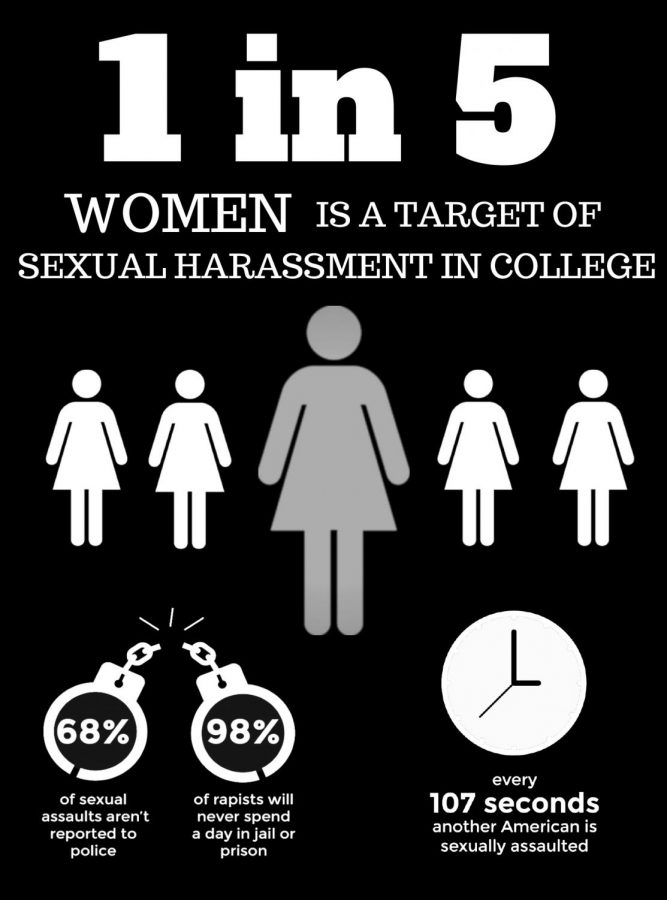Sexual assault, are you at risk?
March 26, 2018
The #MeToo movement sparked many intersectional sexual assault conversations across the world, specifically college campuses.
Students are gearing up for sexual assault awareness month in April with the “Walk a Mile in Her Shoes,” event on April 12.
ULM has had their bout with sexual assault. Last fall, a freshman ULM student was charged with 2nd-degree rape after the female victim reported she was raped in the offender’s dorm room to UPD.
According to justice.gov, sexual assault is any non-consensual sexual contact or behavior. Sexual assault includes “sexual intercourse, forcible sodomy, child molestation, incest, fondling and attempted rape.”
“No means no. If you wouldn’t want it to happen to one of your loved ones, then why do it to someone else’s,” senior kinesiology major Eryn Robertson said.
College campuses have been a breeding ground for many sexual assault incidents Rainn.org reporting almost 11 percent of all students experience rape or sexual assault on college campuses.
“Sexual assault on and off campus is absolutely unacceptable to me. If a person is able to commit such a horrible act that that person should receive full psychological evaluation and punishment,” senior kinesiology major Tommy Garcia said.
Drinking is a college pastime, but it has also been the source of many non-consensual sexual incidents.
According to campussafetymagazine.com, 43 percent of sexual assault victims involved alcohol.
“I feel like if anyone is approached by someone who may seem intoxicated they should do their best to help that person or lead that person to a friend so they can make sure they are in safe hands, not take advantage of them because if I was in that situation that would be exactly what I will do,” Garcia continued.A little over 9,000 students attend ULM, so comparing that statistic to rainn.org would mean about 900 students would have been sexually assaulted.
Of that 900, 54 percent would have not reported they have been victimized. So, for every 10 people you pass, one of those would have been a victim of sexual assault and a about half of them wouldn’t have reported it to the police.
“It’s more common than people think and the biggest problem is that people don’t speak up about their experiences,” senior communication major Aisha Harbor said.
Students are privy to information concerning reported incidents under the Jeanne Clery Act through UPD’s annual crime reports.
The Clery Act requires the university to comply in sharing crime and safety reports, including sexual assault.



